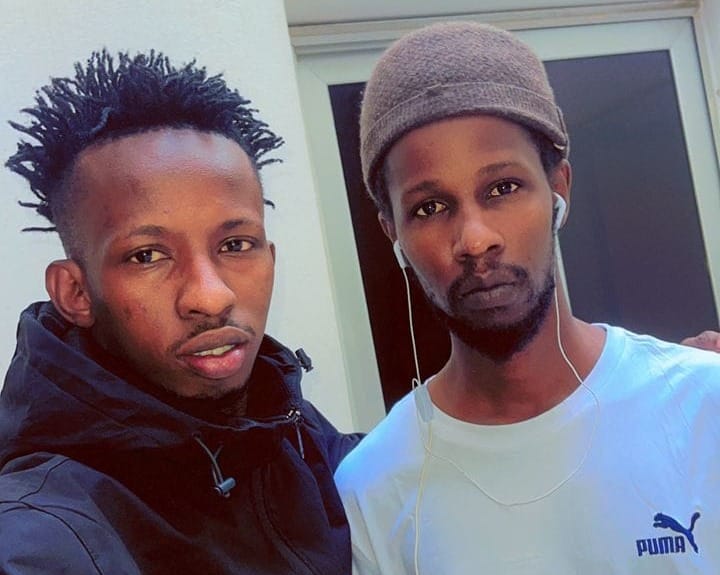Facing death threats, Mauritanian TikTokers seek asylum in Senegal

Two Mauritanian TikTokers are seeking political asylum in Senegal after facing death threats from speaking out against electoral fraud in their home country.
Malick Ba and Bocar Diallo (known respectively as Procureur General and Commissaire Diallo on TikTok) have together garnered hundreds of thousands of followers and millions of views on the social media platform.
They were among the many Mauritanians that took to the streets following elections last June, in which President Mohamed Ould El-Ghazaouani claimed a second five-year term in office. Protesters say he stole the elections from opposition leader Biram Dah Abeid — an anti-slavery activist well-known for speaking up for Afro-Mauritanians who make up a majority of the population, but have historically faced discrimination along with other non-Arab communities. Dah Abeid rejected the results and alleged fraud. At least three people died at the hands of Mauritanian security forces in the post-election protests.
‘We went out to demonstrate with marches, rallies, we made TikTok [livestreams] to demand our rights,’ Ba tells New Internationalist from Karibu, a shelter for political refugees and activists in Dakar. Ba and Diallo have been in Dakar since July last year. ‘We had to flee before they [security forces] killed us. They were looking for us because they said we were responsible for people taking to the streets.'
Last year’s elections were a litmus test for the young and fragile Mauritanian democracy, which has faced decades of coups and military rule since gaining independence from France in 1960. Protests had previously broken out in the capital Nouakchott in 2019 when El-Ghazaouani, a former army general, first took office.
Speaking about the 2019 protests, Ba said: ‘The president ordered the army to repress the demonstrators, cut the internet connection, all to create a state of fear and silence the people. Now, the president is doing exactly the same thing. We have had enough’.
With no freedom of expression in Mauritania and restrictions on public demonstrations, many people turn to social media — particularly TikTok — to organize and demand their rights.
‘I make videos denouncing the injustices that many people go through: the lack of rights, the systematic violation of human rights by the regime,’ says Diallo, a mechanic by trade.
@procurer._officiel @ALLIANCE des ORPHELINS R.I.M
♬ son original - procureur général
Mauritania has a racial divide between the dominant Maures and the Black peoples of the south who have traditionally been enslaved by them. Although Mauritania became the last country to abolish slavery in 1981, an estimated 149,000 people are still enslaved in Mauritania - about 3 per cent of the population, according to the Global Slavery Index (GSI) in 2023. Crackdowns on Black Mauritanian activists have led to tensions in recent months, with several extrajudicial killings linked to the Mauritanian authorities.
‘In Mauritania, if you talk about your rights, they [authorities] point the finger at you […] we raise awareness among young people so that […] we can have political opposition,’ says Ba.
The future of these two young activists is uncertain as they await their claims to political asylum in Senegal. Meanwhile, they continue to speak out about their rights.
‘I have visibility and it is my responsibility to denounce what the regime is doing,’ says Diallo.
— Carolina García Cataño in Dakar
📰 Read more about the Mauritanian election results and the continued racial and ethnic struggle in Common Futures Conversations
👉 Follow @procurer.officiel and @comisserebabaali0 on TikTok
🤲 Support Karibu, a shelter for political refugees and activists under threat in Africa, set up by the Senegalese social movement Yen a Marre
Are you a freelancer? Pitch us a story
Looking for more? Listen to our podcast The World Unspun
Shop ethical goods at our very own Ethical Shop
Currents is included as part of a subscription to New Internationalist.

